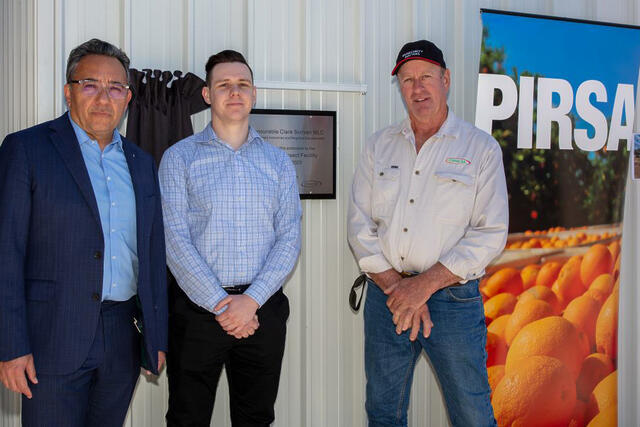Building resilience to manage fruit fly
Fruit flies are one of the world’s most destructive horticultural pests and pose a risk to most commercial fruit and vegetable crops. In Australia, Queensland fruit fly (Qfly) and Mediterranean fruit fly (Medfly) are the two species threatening our horticultural industry. To support our national capability to manage fruit fly and export Australia’s horticultural produce internationally, the department has committed $30 million over three years through the Building Resilience to Manage Fruit Fly package. The purpose of the package, which was announced in December 2021, is to help prevent the spread of fruit flies across the country, drive down pest pressure in vulnerable areas, and grow exports through investing in post-harvest treatment and market access research infrastructure.
Out of the package, $20 million has been allocated to South Australia. One of the projects is already up and running. The expansion of the world leading National Sterile Insect Technique (SIT) facility at Port Augusta opened at the end of August. The upgrade, which included $3 million in Commonwealth funding and additional co-contributions from the Department of Primary Industries and Regions South Australia (PIRSA) and Citrus Australia, will extend the current centre, enabling a doubling of the number of sterile Qfly from 20 to 40 million a week. These sterile Qfly will be sent for release in South Australia’s Riverland as part of the response to current outbreaks in the region.
The package will also contribute funds ($9.8 million Commonwealth contribution, with co-contributions from the South Australian Government along with the South Australian Produce Market) to the develop a $50 million biosecurity facility, based in Pooraka, in Adelaide’s northern suburbs. This post-harvest treatment facility will be a state first for South Australia. It will provide inspection, quarantine and treatment of fruit and vegetable produce which is vital for exporting produce domestically and globally.
The department is continually driving improvements to the national management of fruit fly in partnership with state and territory governments. Stay tuned for further project announcements as we continue to tackle fruit fly.
View Original | AusPol.co Disclaimer
